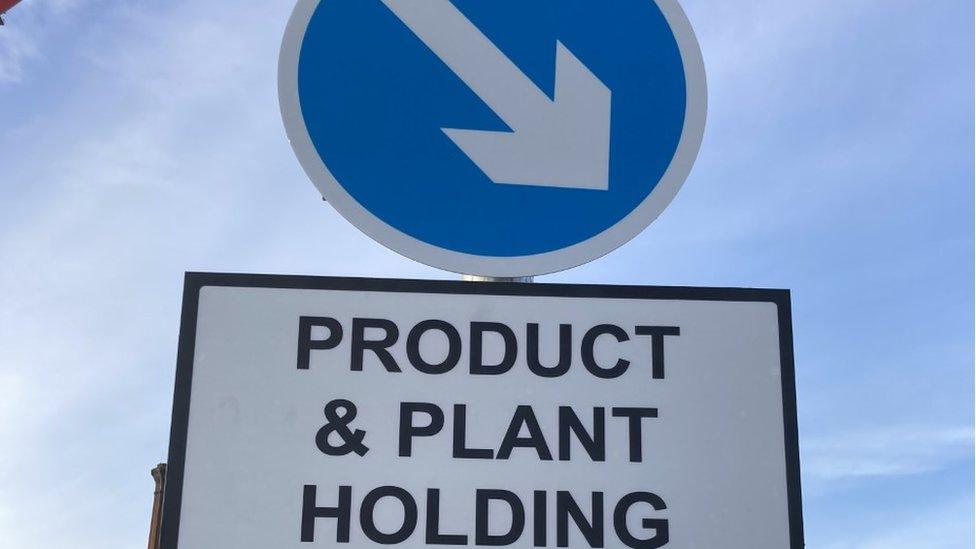Brexit will increase food supply chain costs, warn business groups
- Published
- comments
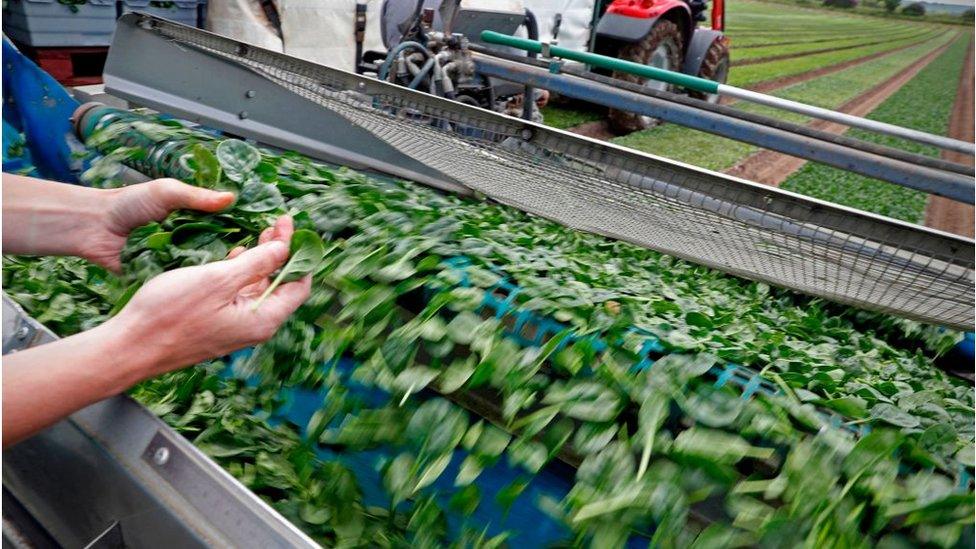
Brexit red tape is likely to increase food supply chain costs, the Food and Drink Federation has warned.
Those costs will either be passed on to consumers or absorbed by retailers, the industry group said.
Other business bodies warned of further possible shortages in Northern Ireland supermarkets, and more costs for manufacturers.
The Cabinet Office said it was working closely with businesses to resolve issues.
Food and Drink Federation chief executive Ian Wright told MPs that there will be short and long-term costs to "re-engineering" supply chains.
There will be extra food supply chain costs due to more paperwork, Mr Wright told the Future Relationship with the European Union Committee on Wednesday.
"Unless the deal changes in some material way, we're going to see the re-engineering of almost all the EU-UK and GB-NI supply chains over the next six to nine months," Mr Wright said.
"In the short term there will be costs and time wasted for supply to reach the shelves, and in the long term will be costs and changes, and fairly significant changes, to the way in which manufacturers in the UK and in the EU interact when they are producing product," he said.
Whether those costs would be passed onto consumers was a decision for retailers, an FDF spokesperson said.
"Food and drink manufacturers typically operate on tight margins and given the challenges many face because of the closure of the hospitality sector, it will not be possible to simply absorb the added costs that will result from border disruption and new non-tariff barriers," the spokesperson said.
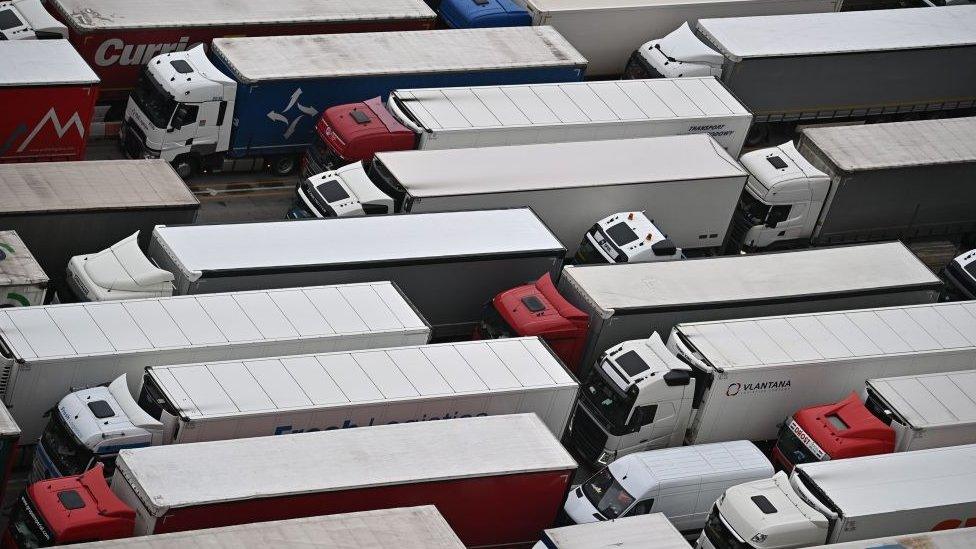
Mr Wright criticised the bureaucracy that his members are now facing when trying to export from the UK to the EU.
He used the example of one company that used to complete the necessary paperwork within 3 hours, but it was now taking them 5 days.
He said the government had struck a deal with the European Union too late for food and beverage companies to get ready for the new regulations which came into force at the end of 2020.
Ports problems
British ports have been contending with a number of pressures over the past months, including from new Brexit systems and the coronavirus crisis.
The pressure on ports for companies doing trade with the European Union will get worse before it gets better, Mr Wright added.
There are currently around 2,000 lorries per day crossing between Dover and Calais, when there are normally 10,000.
He added that traffic between Northern Ireland and the Republic of Ireland is also very light, so the systems in place haven't really been fully tested yet.
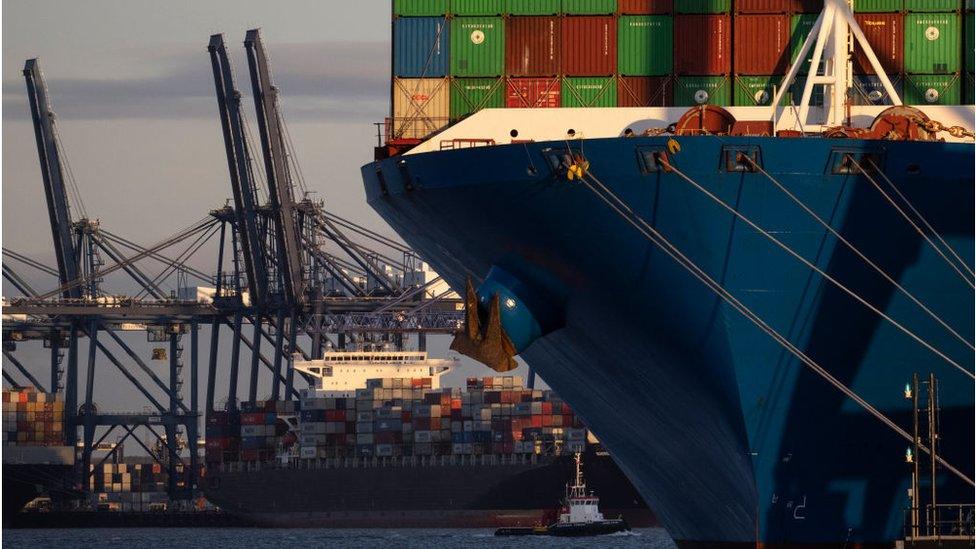
'Supermarket disruption'
The British Retail Consortium warned of further possible shortages of some products in Northern Ireland supermarkets.
Andrew Opie, director of food and sustainability at the British Retail Consortium said significant disruption for supermarkets moving products from Great Britain into Northern Ireland could be expected from April onwards unless the government deals with the fact that the grace period on Export Health Certificates will come to an end.
There is currently a three-month grace period from the EU which exempts full certification for all products of animal origin.
"Northern Ireland is a particular problem, there is no doubt about that, and a particular problem for UK supermarkets," Mr Opie said. "If we don't find a workable solution for retailers in the next couple of months we do face significant disruption in Northern Ireland."
Mr Opie added that the system for trade between the UK and the EU is not set up for just-in-time supermarket supply chains.
Manufacturer costs warning
There are also a large number of small manufacturing businesses who deal directly with the EU that face extra costs, according to Stephen Phipson, chief executive of Make UK.
"We have... around 50,000 manufacturers, which only trade with the EU," he said. "Their businesses are set up to be part of the just-in-time supply chains backwards and forwards across the Channel."
He said for them, trade before the end of the Brexit transition period was internal.
"There was never any paperwork, there was never any requirement to do things like rules of origin calculations, so there was no record-keeping in that respect."
Mr Phipson gave the example of one small business in Huddersfield making LED lenses for cars in the Italian automotive industry.
"For them it's about just in time delivery, so any kind of customs paperwork, rules of origin calculations, for them is very difficult. They're operating on lower [profit] margins, so they're operating typically on a 4% margin, so as soon as you start adding this bureaucracy into it, it adds up."
'Goods flowing'
The Cabinet Office said the Brexit deal was "the first free trade agreement the EU has ever reached based on zero tariffs and zero quotas and it is fantastic news for families and businesses in every part of the UK".
A spokesperson continued: "We have always said there would be new rules and processes for businesses to follow after the end of the transition period and are working closely with them to resolve any outstanding issues."
On Northern Ireland trade, the Cabinet Office said a new team had been set up "and will be working with supermarkets, the food industry and the Northern Ireland Executive to develop ways to streamline the movement of goods."
"The grace period for supermarkets and their suppliers is working well, goods continue to flow effectively between Great Britain and Northern Ireland and we are working intensively with industry as new requirements come in," the spokesperson said.
Last week the Cabinet Office said that businesses needed to be fully compliant with the new trade rules to avoid disruption.
Related topics
- Published8 January 2021
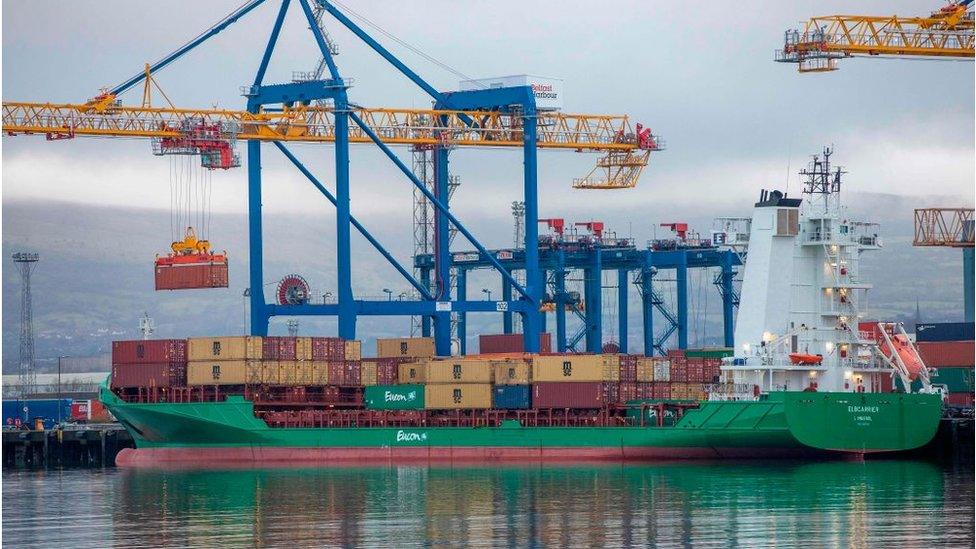
- Published1 January 2021
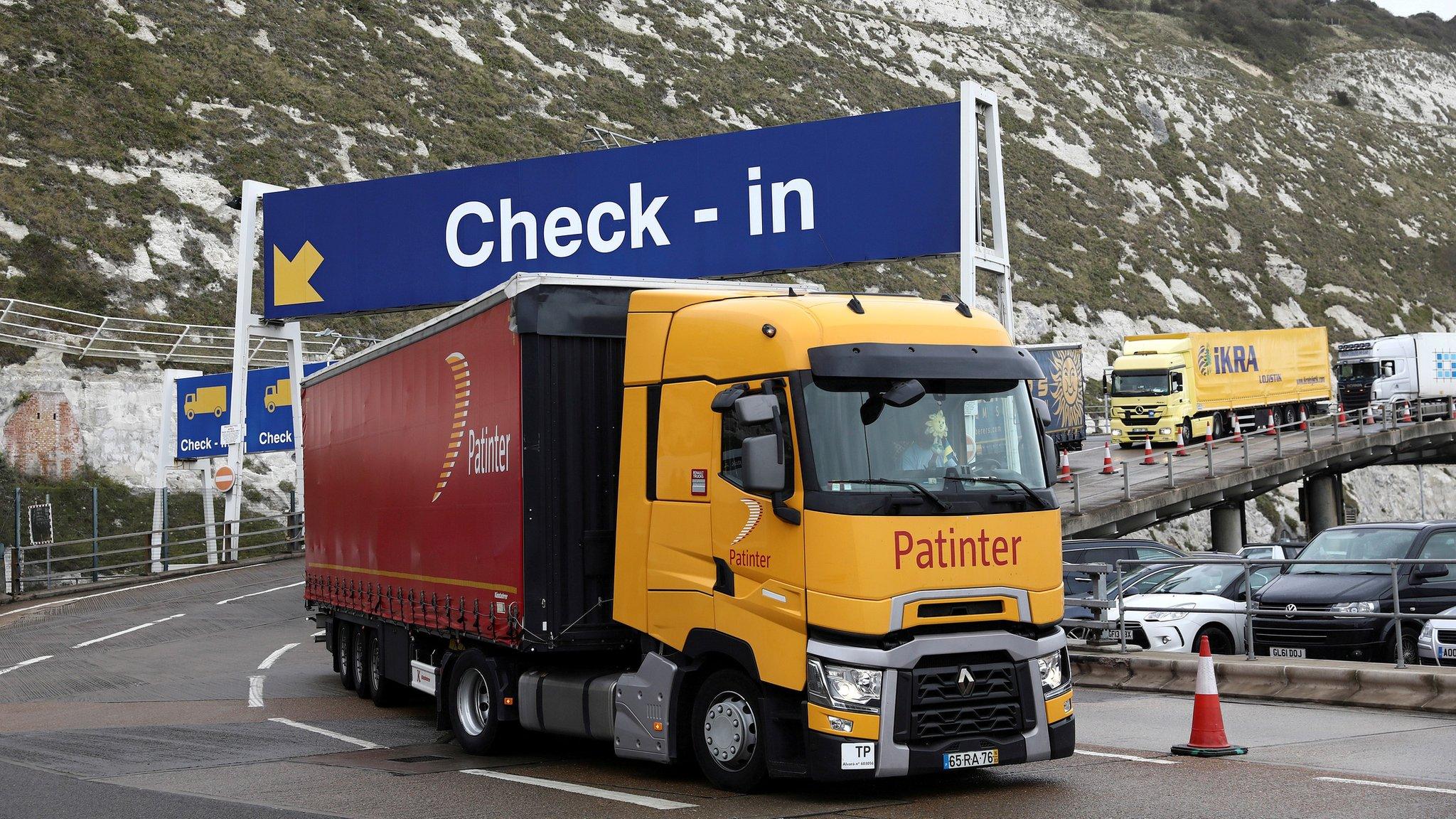
- Published23 December 2020
